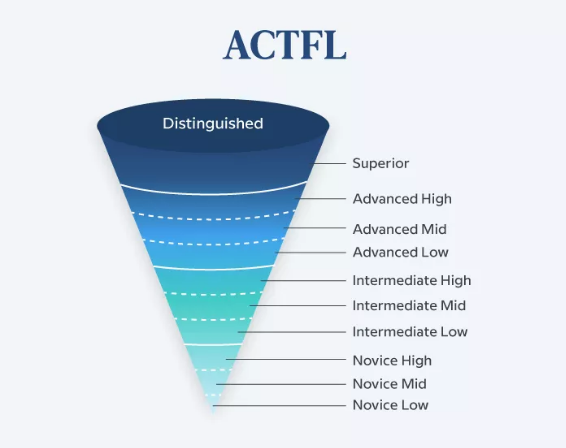
How (And Why) To Determine Your Level Of Language Proficiency
Here’s your guide to which scales and exams you should use to express how fluent you are in a second language, and why it even matters.
When it comes to describing how well you speak a foreign language, the answer is almost never as straightforward as “I’m completely fluent.” Your skill level is probably somewhere between only being able to say “hello” and “goodbye” and total fluency, but that’s a vast middle ground to find your place in. Fortunately, there are a few widely used scales to measure language proficiency, as well as exams to determine where you fall on those scales. Use this guide to decide which scale and which the corresponding exam is right for you.
Language Proficiency Scales
There are several scales you can use to evaluate your language proficiency (all of which have long acronyms), so which one should you go with? Well, it depends on what you want to use the scale for and where you want to use it.
For Americans, the most common scales are the Interagency Language Roundtable scale (ILR) and the American Council on the Teaching of Foreign Languages scale(ACTFL).
The ILR, which was developed by the United States Foreign Service Institute, is a fairly simple five-level scale: elementary proficiency (S-1), limited working proficiency (S-2), professional working proficiency (S-3), full professional proficiency (S-4), and native or bilingual proficiency (S-5). The ILR is the standard measure of language proficiency for jobs in the federal government.
The ACTFL was developed from the ILR, but it’s more granular. It has five main levels (novice, intermediate, advanced, superior, and distinguished), and the first four levels are each split into low, medium, and high sub-levels, allowing for a very specific proficiency evaluation. According to the ACTFL website, the scale is “intended to be used for global assessment in academic and workplace settings.”
Europeans generally use the Common European Framework of Reference (CEFR) for defining language skills. It’s a six-point scale, divided into three main groups: basic user (A), an independent user (B), and proficient user (C). These are then each split into two sub-levels: A1 and A2, B1 and B2, and C1 and C2. You’ll want to use this scale if you’re planning to get a job in Europe or to enroll in a European school that requires foreign language skills.
Language Proficiency Exams
You could pick a scale and rely on self-assessment to define your skill level in a second language, but a more empirical way to determine where you fit would be to take a language proficiency exam. There are a number of tests available that give results based on the various scales, so the best move is probably to select an exam based on the scale you’d like to use (and, of course, the language you’re learning).
One of the most comprehensive and commonly used language exams in the United States is the ACTFL Assessment of Performance toward Proficiency in Languages(AAPPL). The test assesses reading, writing, listening, and speaking in Arabic, Chinese, French, German, Korean, Portuguese, Russian, Spanish, Hindi, Italian, Japanese, Thai and English as a second language. As the name indicates, the AAPPL is based on the ACTFL scale.
Other exams vary by language. The TELC (German), TCF (French), and TORFL (Russian) are based on the CEFR scale, and the SOPI (Spanish) is based on the ACTFL scale. If you’re learning English as a second language, the most popular exam is the TOEFL, which uses its own seven-level scale for scoring.
Why Does Your Language Proficiency Matter?
You might be wondering why you should even bother paying to take a time-consuming exam just to learn that you’re at a “medium superior” level of Spanish. Why can’t you just say “I’m pretty decent at Spanish” and call it a day? There are a couple of reasons this wouldn’t really be sufficient.
First, employers and schools often require a quantifiable measure of your language abilities. Being “sort of fluent” is fairly worthless on a résumé or application. Having a universal way to talk about your language proficiency can help you stand out in a crowded field of job candidates or school applicants.
Second, taking an exam is actually a great motivator for you to ratchet up your language learning. If you have to set aside time to study for a language proficiency test, you won’t be able to put off practicing your language skills any longer. It offers a great opportunity for you to get motivated and take your new language to the next level.
Source: www.babbel.com
Credit: Dylan Lyons




